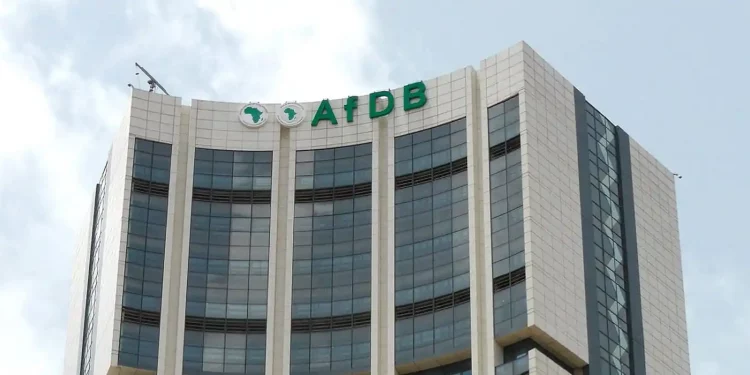Global architectural reform to top agenda of the AfDB’s 2024 annual meetings
“If there is anything you want to take away that the debate is since 1945…the development finance has been structured and deployed, does not favour Africa, and the developing world and there is therefore the need for reform,” Nmehielle said. “That is the central message.”
- Advertisement -
As the African Development Bank turns 60 this year, the institution will reflect anew at its upcoming Annual Meetings, on the ongoing economic challenges facing its member countries and the participation of African countries in the global financial system.
Prof. Vincent Nmehielle, the Group’s Secretary-General and Kevin Urama, Chief Economist and Vice President for Economic Governance & Knowledge Management, addressed journalists on Wednesday 03 April, during a press conference ahead of its Annual Meetings, scheduled from 27 to 31 May 2024 in Nairobi, Kenya. The 2024 meetings will be held under the theme: “Africa’s Transformation, the African Development Bank Group, and the Reform of the Global Financial Architecture”.
- Advertisement -
The meetings will offer solutions in which the Bank and other Multilateral Development Banks (MDBs) can respond better and faster to scale up resources for the sustainable development of the continent.
- Advertisement -
Nmehielle said the Bank’s governors would engage with the president of the African Development Bank to explore ways in which the Bank and other Multilateral Development Banks (MDBs) could respond to the call to work better together to significantly scale up resources for the sustainable development of the continent.
This year’s Annual Meetings will bring together more than 4,000 delegates and participants, Nmehielle said:
“Despite a sustained economic growth over the past two decades, Africa’s economic transformation remains incomplete…The Knowledge Events will, therefore, explore how best to fast-track structural transformation across the continent. The events will also address the importance of a reconfigured global financial architecture as an engine for structural transformation,” the Secretary-General said.
Elaborating on some of the key knowledge events to be held during the meetings structured around its theme, Kevin Urama, Chief Economist and Vice President for Economic Governance & Knowledge Management, said the Presidential Dialogue would bring heads of state and governors together to take stock of measures and reforms:
“In all our research we have found that financing has been a major constraint of accelerated transformation on the continent,” Urama said.
He added that an event on measuring the green wealth of the continent would unpack “how Africa’s natural resources could drive the transformation of the continent even better than in previous years.
“In 2024 we see the continent growing around 4% – much higher than the global average. Over 15 countries were even higher at 5%,” he said.
Urama described this as impressive given all the shocks the continent is facing. However, population growth was a big setback, Urama warned, as population growth which did not match economic growth leads to continuing poverty, despite growth.
- Advertisement -
Getting governance right impacts poverty
“Africa has to get its governance right,” Nmehielle said. “We have to manage our resources well…how to engage to minimize waste of resources…Africa must come to the point where it sees governance as an important instrument of economic development. “We all have to put our hands on deck – the government, the private sector and all citizens,” he added.
Answering questions from journalists on economic reforms in Zimbabwe, Urama said the southern Africa nation was on track to pursue its economic transformation goals. Debt, management, improving risk ratings of countries and related topics would be on the table at the Annual Meetings as part of global architectural reform discussion, he added:
“Already the government of Zimbabwe is doing a lot to address debt arrears clearance. He said the Bank is working with the minister of finance to ensure debt reduction models to enable the country to maximise its huge economic advantages, Urama said.
He commended Mthuli Ncube, the nation’s finance minister as well as the country’s central bank governor for putting Zimbabwe on track. “If you look at the GDP growth it is really on a very positive trajectory,” Urama said.
Africa is a key participant in the ongoing dialogue around global architectural reforms, Urama noted. He said the Bank under the leadership of its president Dr. Akinwumi Adesina, was leading and shaping the conversation through innovation and pioneering initiatives such as hybrid bonds and a plan which would see International Monetary Fund Special Drawing Rights, or SDRs, channeled to multilateral development banks who could leverage them to provide extra financing for development.
“Africa is really driving that conversation significantly,” Urama said:
“If there is anything you want to take away that the debate is since 1945…the development finance has been structured and deployed, does not favour Africa, and the developing world and there is therefore the need for reform,” Nmehielle said. “That is the central message.”
Both leaders said Africa’s access and participation in the global financial system was key and that included African countries’ greater participation as well as preparing themselves to better take advantage of available access to finance.
The statutory annual meetings are the African Development Bank Group’s most important event of the calendar year. The 59th Annual Meetings of the Board of Governors of the African Development Bank and the 50th Meetings of the Board of Governors of the African Development Fund will take place at the Kenyatta International Convention Centre (KICC) in Nairobi, Kenya.
Source:norvanreports
- Advertisement -


